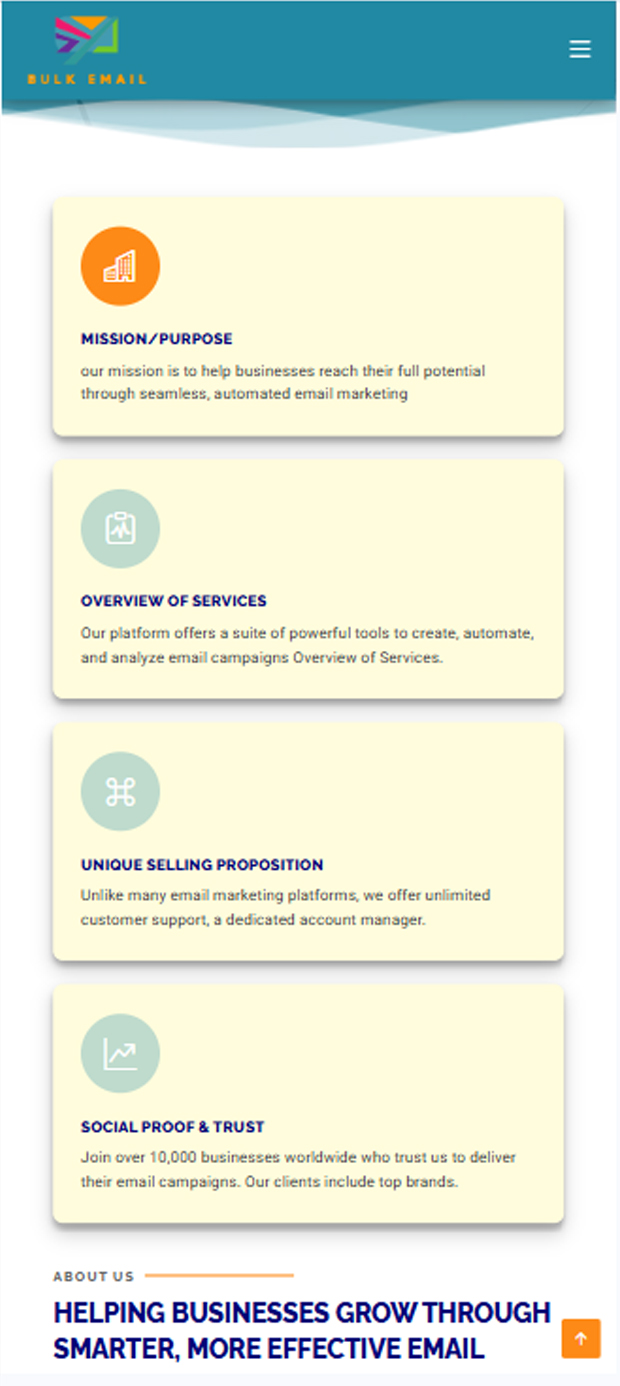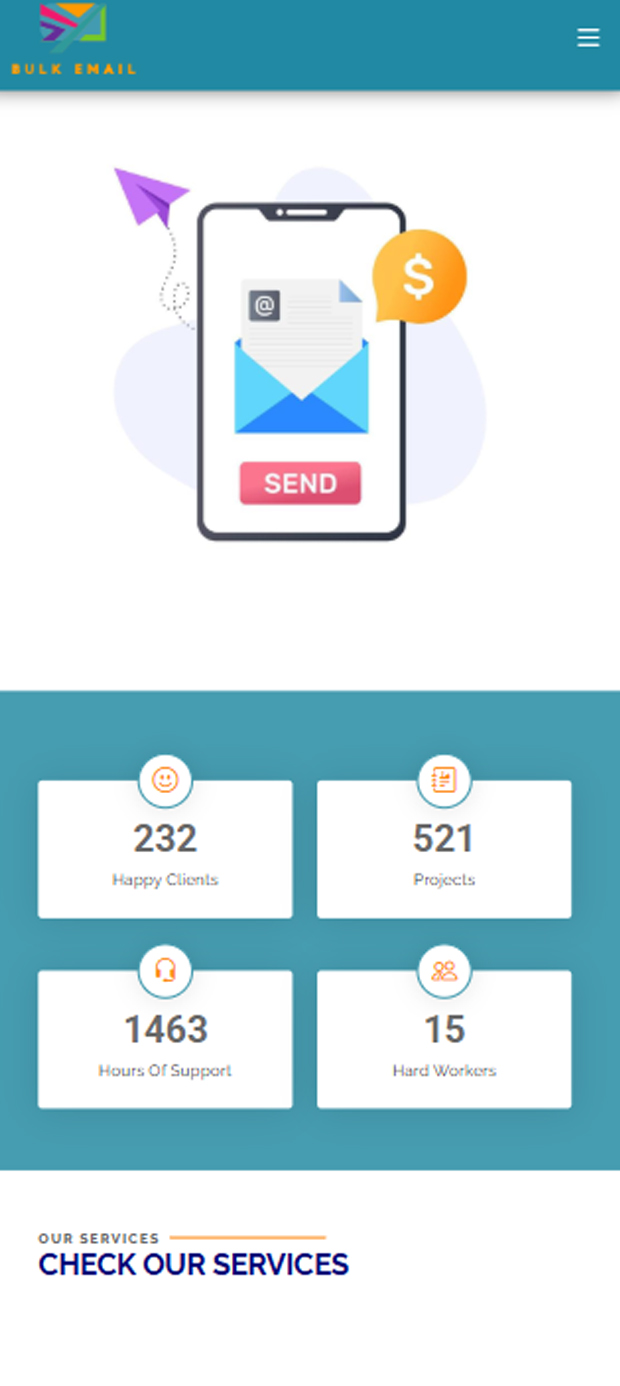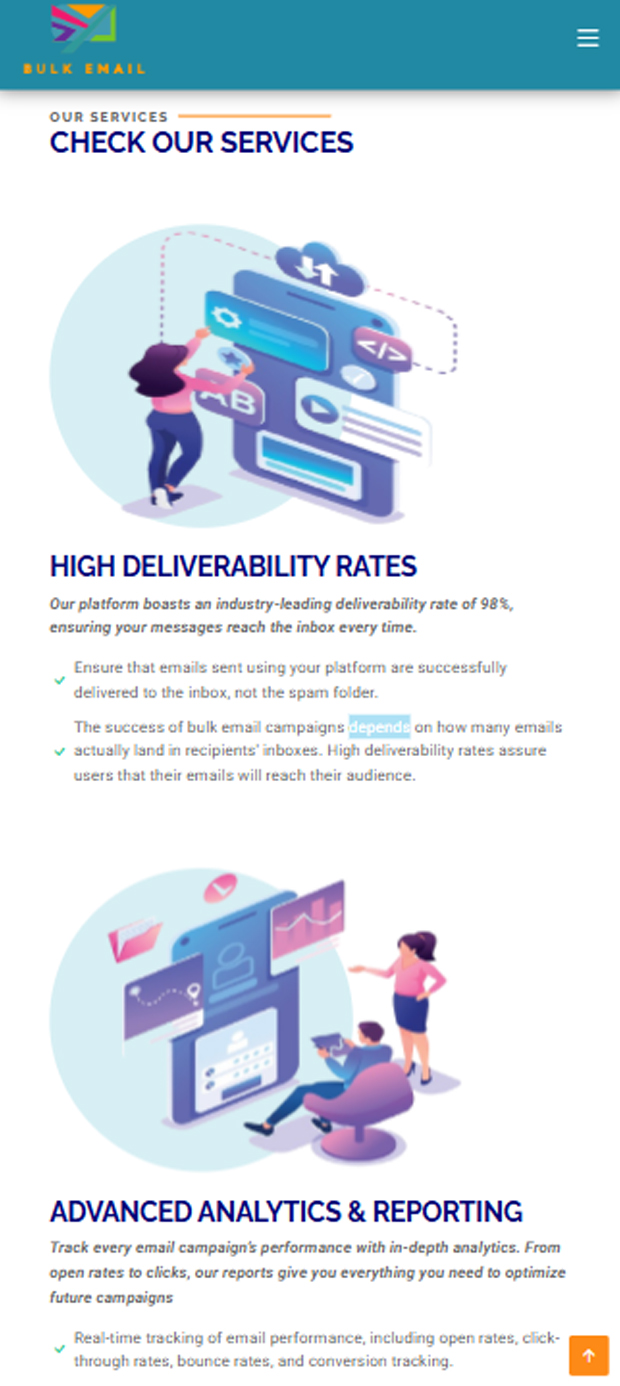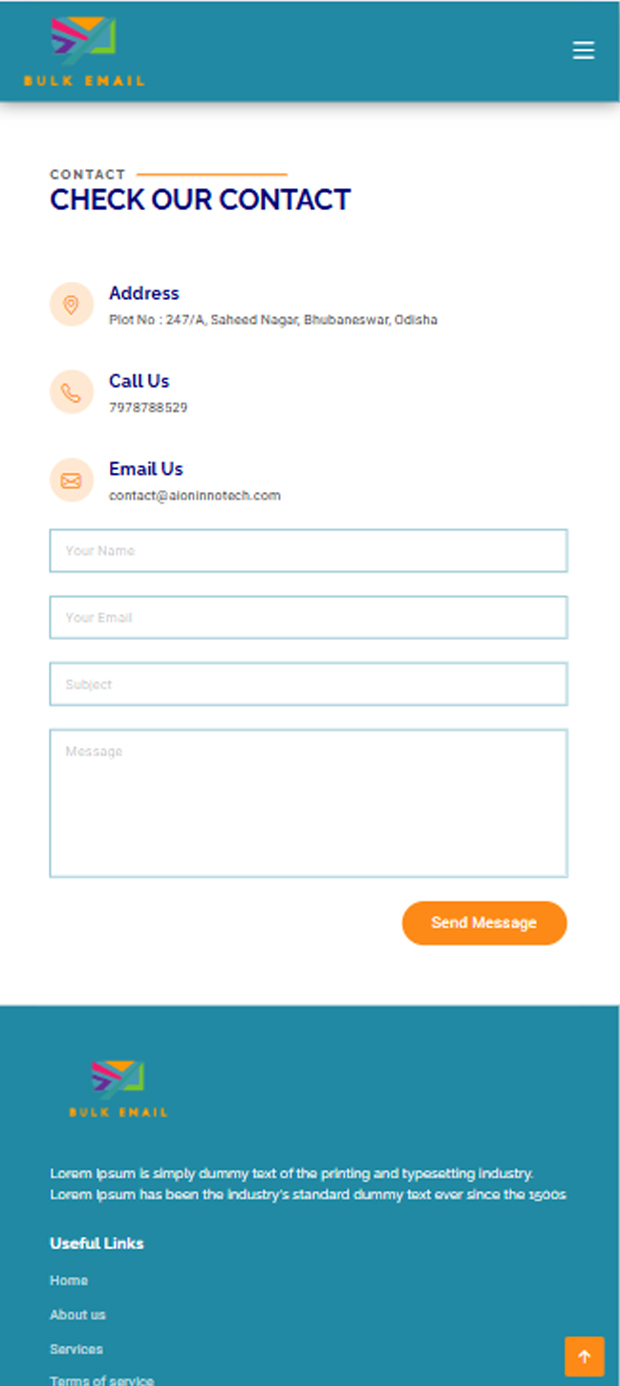About Email Marketing in India
Email Marketing in India
Bulk Email Marketing is the practice of sending a large number of emails simultaneously to a targeted group of recipients, often to promote a product, service, or provide information. It's a key component of digital marketing strategies due to its cost-effectiveness, scalability, and ability to reach a large audience in a short time. It can be used for various purposes, including promotions, newsletters, updates, event invitations, and more.



Benefits of Email Marketing in India :
Cost-Effective:
Compared to traditional marketing methods, bulk email marketing is very affordable. There are no printing or postage costs, and it scales easily.
Wide Reach:
Emails can be sent to thousands (or even millions) of people in one go, ensuring your message reaches a broad audience.
Measurable Results:
Provides detailed analytics, such as open rates, click-through rates, and conversions, helping you assess the effectiveness of your campaigns.

Personalization:
Allows you to send personalized content to recipients based on their preferences, behaviors, or previous interactions, which can increase engagement.
Automation:
Save time by automating follow-up emails, welcome messages, and other repetitive tasks, ensuring timely communication.
Improved Engagement:
Sending relevant and timely emails can keep your audience engaged, build trust, and encourage conversions.
Key Features of Email Marketing in India :
Email List Management:
- Segmentation: You can divide your email list into specific groups (e.g., by age, location, purchase behavior, etc.) to send personalized and relevant content to different recipients.
- Opt-in/Opt-out Options: Ensures recipients willingly subscribe to receive emails (opt-in) and can easily unsubscribe (opt-out) when they no longer wish to receive emails.
Email Campaign Creation:
- Email Templates: Use pre-designed email templates that are visually appealing and responsive to different devices (especially mobile).
- Personalization: Customize emails with the recipient’s name, location, or other personal details to make the content more relevant and engaging.
- Compelling Subject Lines: Craft attention-grabbing subject lines that encourage recipients to open the email.
- Clear Calls to Action (CTA): Make it easy for recipients to take action (e.g., "Shop Now," "Read More," "Register Here").
Automation and Scheduling:
- Autoresponders: Automate emails based on triggers, such as a welcome email when someone subscribes or a thank-you email after a purchase.
- Scheduled Emails: Plan and schedule your emails to be sent at specific times or intervals. This can help optimize the timing of your campaigns based on recipient behavior.
Email Tracking and Analytics:
- Open Rates: Tracks how many recipients opened the email. This helps measure the effectiveness of the subject line and overall interest.
- Click-Through Rates (CTR): Tracks how many recipients clicked on links within the email, such as buttons or product links.
- Bounce Rates: Measures the number of undelivered emails. "Hard" bounces (invalid email addresses) and "soft" bounces (temporary issues) are both tracked to improve list quality.
- Unsubscribe Rates: Measures how many recipients opted out of receiving further emails. A high rate might indicate issues with email frequency or content relevance.
- Conversion Rates: Measures how many recipients took the desired action after receiving the email, such as making a purchase or filling out a form.
- Compliance with Regulations:
- CAN-SPAM Act: Ensures that emails comply with legal requirements, such as providing an opt-out mechanism, including truthful subject lines, and including the physical address of the sender.
- GDPR Compliance (for EU-based recipients): Requires explicit consent from recipients to receive marketing emails and mandates transparency on how their data is being used.
- Bulk Email Software:
- Email Marketing Platforms: Tools like Mailchimp, SendGrid, Constant Contact, ActiveCampaign, and GetResponse are popular for creating, sending, and analyzing bulk email campaigns. They also provide features such as:
- Automation of campaigns based on triggers.
- A/B testing for subject lines, CTAs, and email content.
- Personalized email creation for targeted campaigns.
- Email Marketing Platforms: Tools like Mailchimp, SendGrid, Constant Contact, ActiveCampaign, and GetResponse are popular for creating, sending, and analyzing bulk email campaigns. They also provide features such as:
Email Marketing in India
Aioninno Technologies Pvt. Ltd's expert email marketing services in India. Unlock the power of targeted outreach, engage your audience, and drive conversions with our innovative solutions tailored for your success
Best Practices for Bulk Email Marketing:
- Maintain a Clean Email List:
- Regularly clean your email list by removing invalid, inactive, or unsubscribed email addresses to maintain high deliverability and engagement rates.
- Segment Your Audience:
- Segment your email list based on various factors like demographics, past interactions, and purchase history. This ensures you're sending relevant content to each group.
- Focus on a Strong Subject Line:
- The subject line is the first thing recipients see. Make it compelling, concise, and clear about the email’s value to encourage opens.
- Mobile Optimization:
- With many emails being opened on mobile devices, make sure your emails are responsive and display well on all screen sizes.
- Test and Optimize:
- Conduct A/B testing to determine which subject lines, images, and CTAs resonate most with your audience, and use those insights to optimize future campaigns.
- Provide Easy Unsubscribe Options:
- To comply with laws like CAN-SPAM, and to maintain a positive reputation with recipients, always include a clear and easy way for users to opt out of future emails.
- Clear and Compelling Call to Action (CTA):
- Each email should have a specific goal, whether it's directing the recipient to a landing page, promoting a sale, or asking them to sign up for an event. Make sure your CTA is clear and easy to follow.
Challenges of Bulk Email Marketing:
- Deliverability Issues:
- Bulk emails can end up in spam folders if not properly managed. Avoid using spammy words and ensure you're following best practices for deliverability.
- Engagement Decline:
- Sending too many emails or irrelevant content can lead to unsubscribes or low engagement. Maintaining relevance and value is key.
- Legal Compliance:
- Failing to comply with email marketing laws (such as the CAN-SPAM Act or GDPR) can result in fines and damage to your reputation.
- Data Privacy Concerns:
- Ensure that you handle email addresses and personal data responsibly to avoid privacy issues and build trust with your audience.



